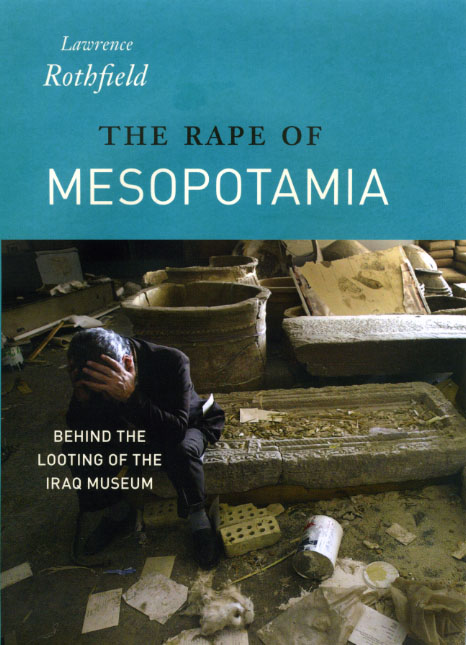Pervasive policy failure

In a new review essay on protecting cultural artifacts, n+1‘s Alexander Bevilacqua singles out Lawrence Rothfield’s The Rape of Mesopotamia: Behind the Looting of the Iraq Museum as “an exposé that is all the more powerful for its calm tone.… His conclusion: Americans in positions of power and responsibility are collectively culpable for the destruction of the Iraqi cultural heritage, a ‘pervasive policy failure.'”
Bevilacqua praises Rothfield for delving “deeper into the matter than simply blaming the Bush administration” for the April 2003 looting of the Iraq Museum, when more than 15,000 artifacts—some of the oldest evidence of human culture—disappeared into the shadowy worldwide market in illicit antiquities. In the years since that then, the losses have only mounted, with gangs digging up roughly half a million artifacts that had previously been unexcavated. Bevilacqua writes that:
The US is a global power with no cultural ministry and was not a member of UNESCO from 1984 to late 2003. There were, therefore, structural causes for US negligence in Iraq: for one, “the absence of social networks between cultural heritage advocates and war planners.” This, Rothfield notes, stands in contrast to the (otherwise regrettable) British occupation, in which political players had a lively interest in Mesopotamian archaeology and were connected by social networks to scholars. In the American case, within a generally hurried and often inefficient war planning process, protecting cultural sites received little attention. General Tommy Franks was most succinct: “I don’t have time for this fucking bullshit.” If war planners failed to think of Iraq’s heritage, archaeologists and curators share the blame for what came to pass. Archaeologists did not focus on the problem of preserving Iraq’s cultural heritage until the fall of 2002. Once they did, they found they had no access to important players in the State and Defense departments.
As a curator and collector tells Rothfield in this excerpt “nobody thought of culture.”